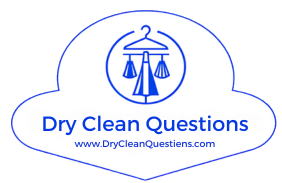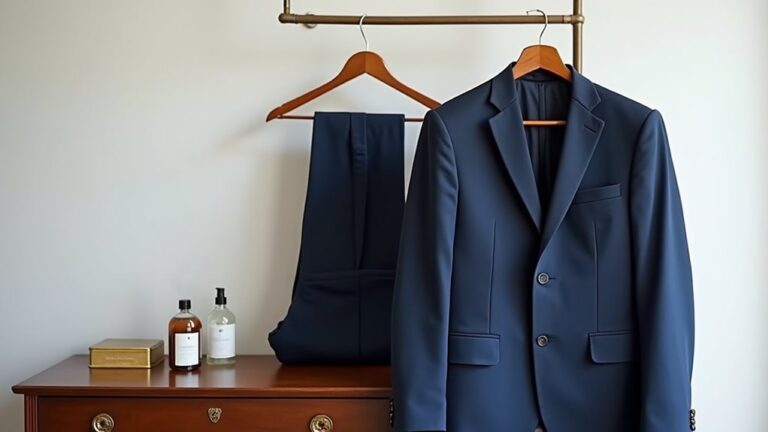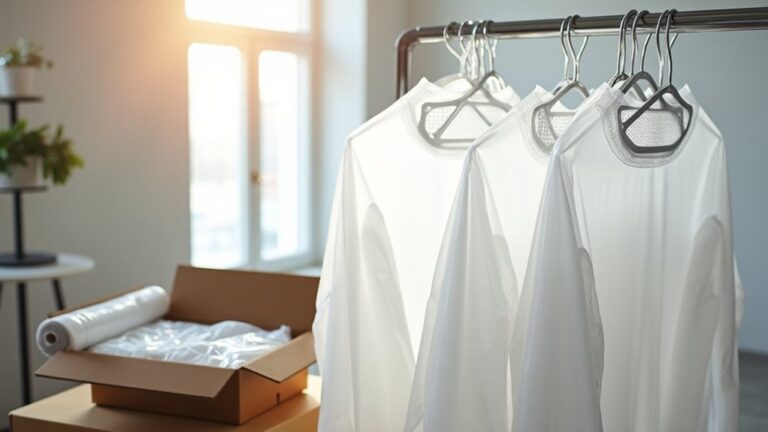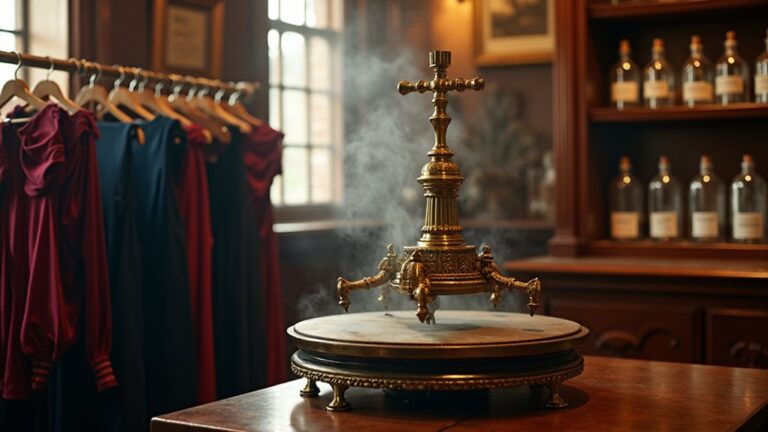You can’t deduct dry cleaning costs for regular business attire like suits since they’re considered personal expenses, but there’s hope if you’re wearing employer-required uniforms that scream “I’m working” – think scrubs, police uniforms, or coveralls that you’d never wear to dinner. Business travel opens another door, allowing deductions for cleaning expenses during overnight trips, though you’ll need rock-solid documentation. The IRS maintains strict rules here, so understanding the exceptions could save you meaningful money.
General Rules for Dry Cleaning Deductions
When I first started working in corporate America, I naively thought I could deduct the dry cleaning costs for my fancy suits, imagining the IRS would understand that looking professional wasn’t exactly cheap 💸.
Looking professional costs a fortune, but the IRS doesn’t care about your expensive suits and dry cleaning bills 💸
Unfortunately, I learned the hard way that clothing expenses are generally non-deductible personal costs, even when you’re required to look sharp for work.
The IRS follows a strict two-prong test: your clothing must be employer-required AND unsuitable for everyday wear. Your typical business attire doesn’t qualify because you could theoretically wear those suits outside work.
However, there are exceptions worth knowing about, like specialized uniforms or business travel situations.
Self-employed individuals and qualifying employees can claim protective clothing and specialized work attire as legitimate business expenses when dry cleaning is required due to workplace safety standards.
Proper documentation and recordkeeping become vital if you’re claiming any deductions.
Business Travel Exception for Dry Cleaning Expenses
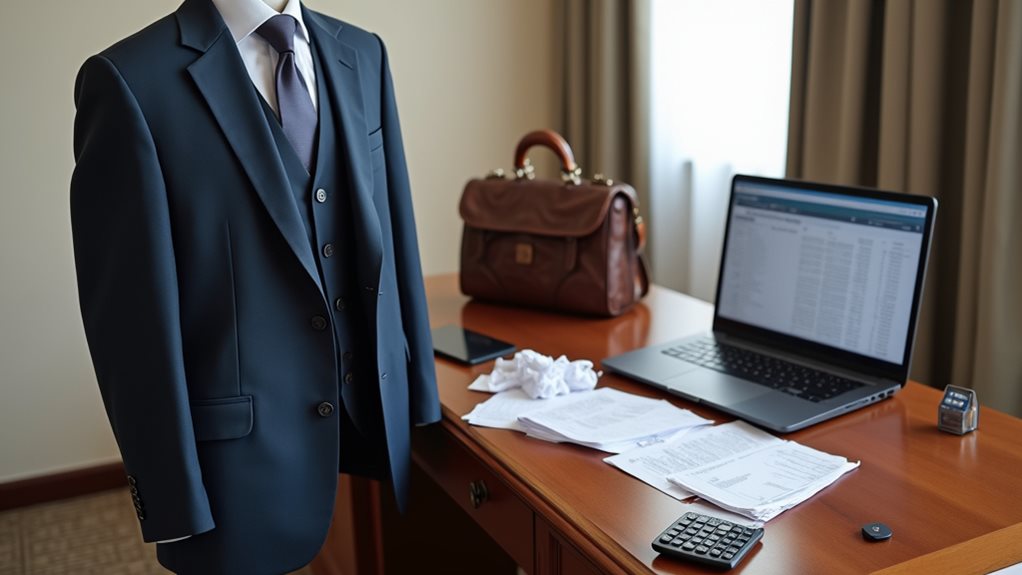
One of my most expensive business trips taught me about a silver lining in the dry cleaning deduction rules that I wish I’d known earlier 💼.
When you’re traveling overnight and away from your tax home, those dry cleaning expenses suddenly become deductible travel expenses, which honestly feels like finding money in yesterday’s pants pocket.
Here’s what you need to remember: the clothing must serve business purposes and isn’t suitable for everyday wear, your travel must involve overnight stays (sorry, same-day trips are non-deductible), and you’ll need solid documentation with dated receipts tied to specific business trips.
I learned this lesson while frantically searching for a dry cleaner in Chicago, clutching wrinkled suits and wondering why nobody warned me about this helpful exception sooner.
Keep in mind that regular business suits and everyday professional attire typically cannot be claimed since they can be worn outside of work, even during business travel.
Qualifying Work Uniforms and Specialized Clothing
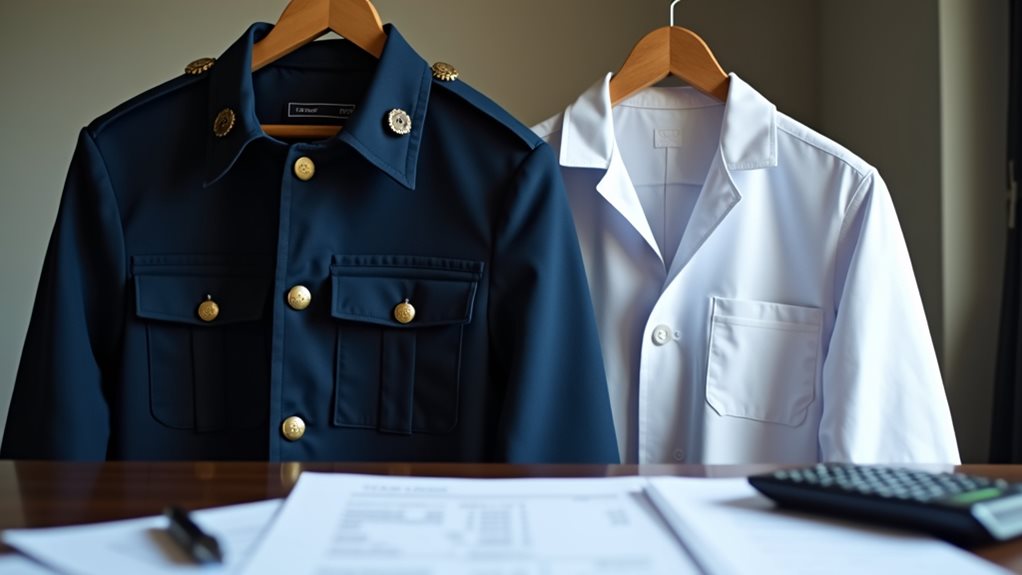
The two-prong test became my nemesis during my first year of self-employment, when I naively assumed that my “professional-looking” blazers would qualify for dry cleaning deductions 🤦♀️.
Here’s what I learned: your clothing must be required by employer AND unsuitable for everyday wear to make dry cleaning costs tax deductible.
Think nurses’ scrubs, police uniforms, or mechanics’ coveralls—specialized clothing you’d never wear grocery shopping.
The IRS criteria are strict because they’ve seen too many people try claiming business suits as qualifying work uniforms.
Whether you’re employed or among self-employed individuals, these business expenses only count if your attire meets both conditions of employment requirements and the everyday-wear test.
Remember to keep detailed records of all qualifying dry cleaning expenses, including receipts and documentation proving the business necessity of your specialized work clothing.
Documentation Requirements and Record Keeping

Because proper documentation can make or break your dry cleaning deduction claims, I’ve learned to treat every receipt like precious currency after my accountant nearly had a heart attack reviewing my shoebox of crumpled papers during my second year of business ownership.
You’ll need detailed receipts showing dates, amounts, and purposes for each cleaning service to make your dry cleaning expenses genuinely tax-deductible. Link these costs specifically to business trips or qualifying uniforms, because the IRS regulations demand clear connections between expenses and work activities.
As a self-employed individual, you must separate personal cleaning from business costs carefully. I’ve discovered that expense management tools save tremendous headaches by digitally capturing receipts and organizing categories automatically.
Remember that the IRS typically only allows deductions for clothing that cannot reasonably be worn outside of work, making specialized safety gear and uniforms your best candidates for qualifying dry cleaning expenses.
State Tax Considerations and Self-Employment Rules

While federal rules might seem straightforward once you’ve got your documentation sorted, maneuvering through state tax laws feels like trying to solve a Rubik’s cube blindfolded, especially when you’re self-employed like I became three years ago.
Here’s what I’ve learned about claiming dry cleaning as a deductible business expense:
- Check your state tax rules – some states still allow deductions even though federal ones are suspended until 2026
- Ensure clothing meets IRS criteria – it must be required for work purposes and unsuitable for everyday wear
- Maintain thorough documentation – receipts and records are your lifeline during audits
- Remember the exclusivity rule – clothing can’t be worn outside work to qualify
Self-employed folks have more flexibility, but the clothing requirements remain strict and unforgiving. Given the complexity of tax laws and varying regulations, consulting with a qualified tax professional is recommended to ensure you’re maximizing eligible deductions while staying compliant with current IRS requirements.
